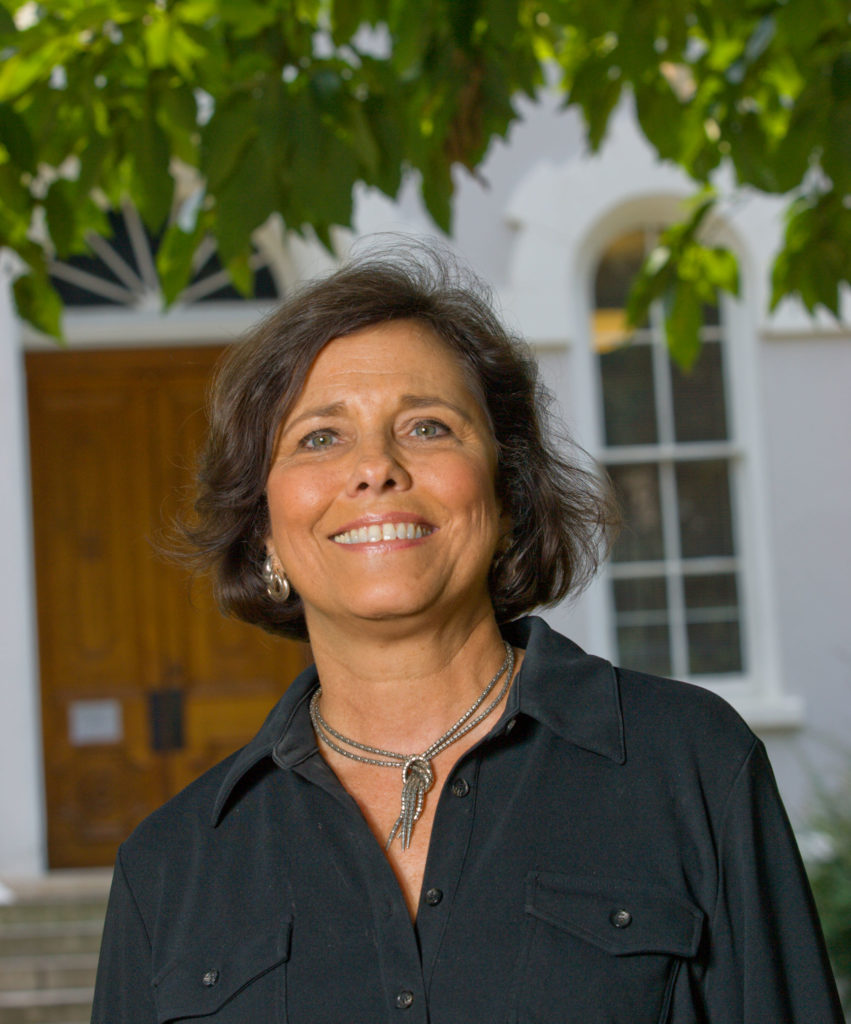Pamela Kleiber, associate director of the Honors Program, has since 2000 coordinated the Honors Faculty Mentor Program, in which selected faculty have mentored freshman Honors students. The program evolved into the Honors Faculty Mentor Network in 2006 with the implementation of the Honors First-Year Experience.
Kleiber discusses with Columns the importance of providing students with “friends on the faculty” who help nurture their academic interests and career aspirations.
Columns: How did the Honors Faculty Mentor Program develop into the present-day Honors Faculty Mentor Network?
Kleiber: The Honors Faculty Mentor Program idea was initiated by faculty members who believed that developing strong mentoring relationships with first-year Honors students outside the classroom would enhance their overall undergraduate experiences at UGA. Under the leadership of Honors Program director Jere Morehead (now vice president for instruction), the program began in fall 2000 when some of our top faculty volunteered to serve as the first mentors. The group included a number of Beaver, Russell and Meigs winners. Their dedication and commitment helped the program find firm footing to thrive during the next few years.
When David Williams became director in 2004, he brought some ideas based on his own personal experiences as a mentor. Upper level Honors students became involved as teaching assistants to help the first-year students understand the purpose and importance of having mentors. Getting input from faculty and student participants also has helped the program immensely. As the program developed, we learned from faculty that in addition to mentoring their first-years, they were referring students to other faculty in the network for additional expertise in areas outside of their own. Therefore, network is a better word to reflect our organic structure and our commitment to help facilitate mentoring relationships that come naturally when students and faculty are given the opportunity.
Columns: What are the benefits for both the faculty and students who participate in the Honors Faculty Mentor Network?
Kleiber: The faculty mentors have the opportunity to pursue individual one-on-one relationships with some of the best and brightest students at UGA. The faculty can share their own experiences with these students and help steer the students in the right direction as they contemplate their academic and career choices. Since there is no prescribed method of mentoring, the faculty mentors can develop their own individual styles based on the personalities and needs of their mentees.
As first-year Honors students are making the transition from high school to college life, what better opportunity than having a “friend on the faculty?” The network provides the students with tangible access to some of our best faculty who are recognized leaders in their fields. With the guidance and support of their mentors, the students can turn a large campus into a smaller place tailored to their individual needs to reach their full potential.
Columns: How does the Honors Faculty Mentor Network work?
Kleiber: Faculty are nominated based on their outstanding teaching record and dedication to undergraduate education. The majority of nominated faculty accept the invitation to join the network and fill out an online form (www.uga.edu/honors/mentor) with their biographical and contact information. They also may suggest suitable replacements if they cannot serve as mentors during that particular time. Many faculty mentors who have mentored for multiple years use the option of taking a year off when other personal or work demands are particularly high and then return in a year or two. Everyone benefits from this flexibility.
All first-year Honors students are eligible to participate and are strongly encouraged to have a mentor during their first year. They sign up for a mentor through the Honors Faculty Mentor Network Web site and also post an online profile. These profiles help both groups get to know each other and match up based on mutual interests.
Faculty mentors can have up to four mentees and interact with their mentees at a variety of events sponsored by the Honors Program. The faculty mentors also are encouraged to host their own activities such as book discussions, special events on campus or dinner at the professors’ homes.
Although the Honors Program helps facilitate the network, it is up to the faculty mentors and mentees to decide when to meet and how they want to move forward in their mentoring relationships. Faculty and students can continue these relationships beyond the first year or participate in other mentoring opportunities not affiliated with the Honors Program.
With more than 180 faculty mentors representing every school and college, I believe our organic approach to mentoring with attention to the faculty mentors’ individual styles and the Honors students’ needs and desires has made the network a successful initiative at UGA.
